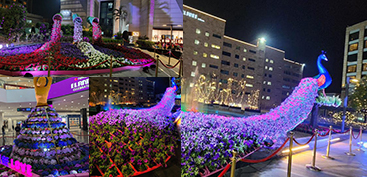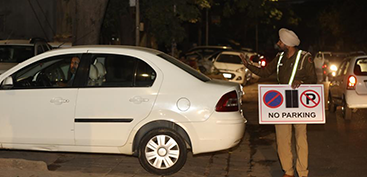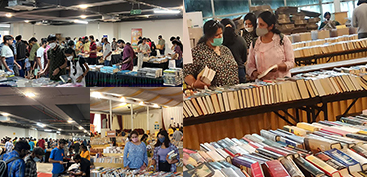Mahatma Gandhi, popularly known as ‘Father of the Nation’, whose ideology of non-violence and peace made world notice India, had this message to the world “My life is my message.“ And who would follow it more than his own lineage. Growing up in the midst of legends like Mahatma Gandhi, and Kasturba Gandhi, Jawaharlal Nehru, C Rajagoapachari, Dr Rajendra Prasad, Sardar Vallabh Bhai Patel, and others, was his grand-daughter, Tara Gandhi Bhattacharjee, daughter of Devdas Mohandas Gandhi, the youngest son among Mahatma’s four children. To add to it, C Rajagopalachari, a Congress leader and the first Indian Governor-General of India was Tara Gandhi’s maternal grandfather. During her visit to Chandigarh, this is what Tara Gandhi Bhattacharjee, a Gandhian, had to say about her association with Bapu, in a free-wheeling conversation with CityWoofer.
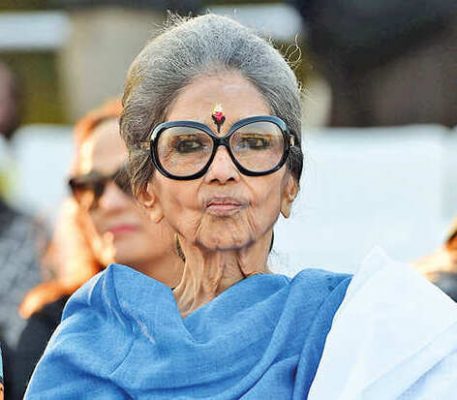
How much time did you spend with your grandfather Mahatma Gandhi?
I spent the first 14 years of my life with Bapuji till he was assassinated. We lived at the Harijan Colony (at present in the North Campus in Delhi) which was founded by him. I have very vivid memories of Bapuji and Kasturba Gandhi, my grandmother.
Tell us about your association with Mahatma Gandhi?
He insisted on no wastage of paper, he would insist us to indulge in diary writing and letter writing. Anna (maternal grandpa), Raja ji, would also stress on the same and I used to write letters to them regularly when they were in jail. The best part is Bapuji would immediately reply, and the letters would reach us within 3-4 days from where ever he was.
Once I wrote to him when he was lodged in Aga Khan jail. He wrote back: My dear Tara, I received your letter, I must say it was bad, the handwriting was also not good …learn from your mother … but keep writing to me.
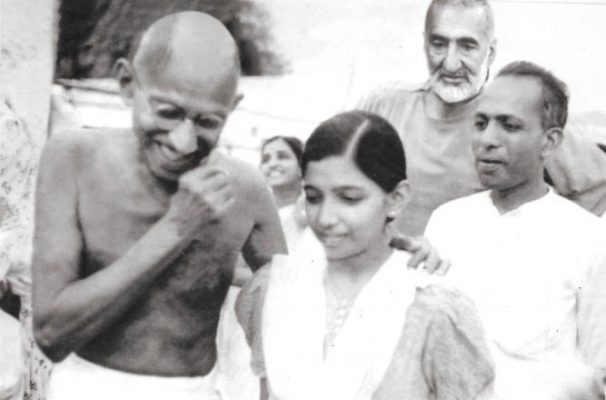
I got very angry and tore his letter, my friends asked me what Bapu ji had written, I said that he was fine. After that I became conscious, and many years later, I wrote to Anna (maternal grandfather) and he wrote back that I had written a beautiful letter, and the handwriting was also very good. Both of them were very particular about good handwriting and correct structure of sentences. Everybody was communicating through letters back then, Bapu ji regularly used to communicate through letters with Jawaharlal Nehru, Sardar Patel, Leo Tolstoy, Winston Churchill, C Rajagopalachari, Dr Rajendra Prasad and many other national and international leaders. The entire revolution of Indian freedom struggle was based on letter writing.
Whatever we know of him is through these letters and dairy writing that he did.
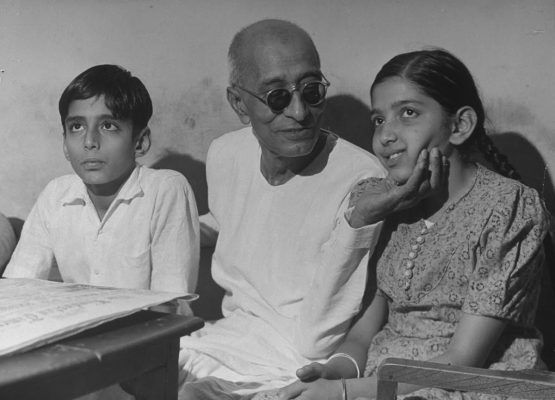
Do you remember anything about Indira Gandhi as his father was a regular visitor at your house?
I was much younger to her, she was about 17 years older to me, but she was great friends with my parents, they referred to her as ‘Indu’. Once she was very unwell, and I went along with my parents to inquire about her health. My father told me on my way home ‘you will see a letter of thanks from her family by tomorrow’ and yes, it was there.
What did you feel about him when you were growing up with him and after he was no more?
I always thought of Bapu ji and Kasturba as any normal child would, for me they were my grandparents. It was natural that they taught us the normal lessons of morality, cleanliness, family traditions, vegetarianism and spinning of cotton. To this day, I wear only khadi, back then I did not like khadi because all my other contemporaries would wear fancy clothes. I like i, not because of the philosophy but I now realise that khadi gives me the feel of it. Now, I derive great meaning and significance from whatever they taught me.
That you are the granddaughter of Mahatma Gandhi and C Rajagopalachari, and had a journalist father, who was the editor, did you have any baggage good or bad?
I didn’t carry any baggage of having such a resplendent lineage, they were normal grandparents, and parents. Once I remember, I was a newly-wed living in Shantiniketan with my husband, and Pandit Nehru happened to visit Kolkata and I had written to him to visit me. After the banquet at night where I met him, he told me that since I had asked him to visit her, he would come to my house the next morning for breakfast. Indira, her sons, Sanjay and Rajiv, they came with him and I served them samosas, jalebis, pakoras. My house was not very well furnished as a newly-wed, I had to turn trunks into deewans, that was how simple and austere life was for us.
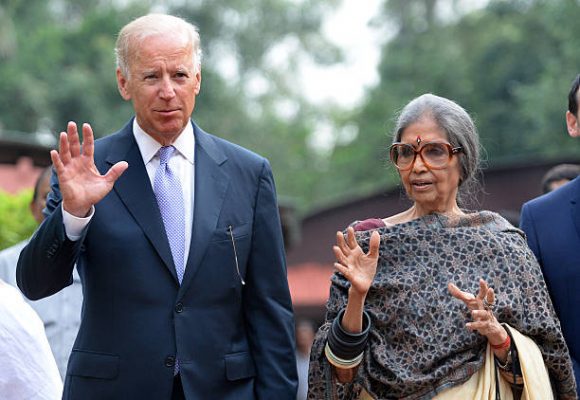
Where did you grow up mostly, and under whose influence?
I mostly grew up in Delhi, first at the Harijan Colony with Bapu and then at the Connaught Circus where my father was given a flat in the Hindustan Times building since he was the Editor. Bapu did not shift there with us, he instead preferred to stay at the Harijan Colony. We used to travel in a tonga to Chandni Chowk which appeared to be far away then. After I got married, I studied at Miranda House, Delhi, and later in Shanti Niketan, Kolkata.
My mother was a Tamil, father Gujarati, husband a Bengali and I grew up mostly in north India. My mother and my husband were the greatest influences in my life. They were non-conformists as they accepted everybody who was different from them.
Kasturba Gandhi was the unofficial ‘mother of the nation’ according to me long before Bapu was christened the ‘Father of the Nation.’ She was an epitome of Indian womanhood, she may have been illiterate but educated beyond one could imagine in love, understanding, cleanliness. She argued with Mahatma Gandhi on everything unless she was convinced.
What is the takeway from Gandhiji ‘s life for all of us?
Gandhiji was the greatest psychologist, he understood people’s mind and that is how he tackled the British who left us as friends rather than foes. Besides, he had a great sense of humour. Gandhi ji and Raja ji were the original minimalists – they were the most learned persons but did not have any library. They learnt from the great philosophers across the world, imbibed it in their lives and adapted all that they learnt in their daily lives. From him, you can learn to be rooted in your philopsophy and be what you are.
He believed that ‘matrishakti’ is the biggest force in creation which is there in every man, besides a woman. In her letters, Manu Ben would often write to him as ‘Pyari Mataji’ rather than Bapu because she felt the hidden love of a mother inside him.
Have you seen India become a better nation as you have been witness to both pre and post independent historical events?
I am proud of today’s youth and see a lot of hope in them. They do not have the right direction, where we have failed. They are being nourished on a lot of hate rather than love and compassion The meaning of the word ‘tolerance’ is construed wrongly these days, we teach them to tolerate, and not respect.
Today’s youth is more mature than we were. There are many things which are wrong, but there is hope.
How do you spend your time?
I am soon going to be 89, I love to be among children and youth.
What is the best tribute to Mahatma Gandhi in your view?
Think of him with laughter and spirituality. He was a one-man corporation, he listened to his conscience and his life was an experiment in itself which guided him on how to eat, sit, do his daily work. He himself called it his struggle with truth. Listen to your conscience – this is the best tribute to Gandhi.







